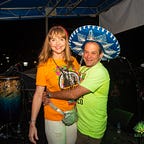Are You Fit to Fly?
Traveling during Coronavirus requires more flexibility and faith than ever before. At the beginning stages of the pandemic, flyers and flight attendants were the super spreaders that enabled the disease to circle the globe. From Wuhan and the Hubai Province to Iran and Italy, a group of Christian missionaries were the first of many travelers to enlarge a local epidemic into a worldwide catastrophe of epic proportions.
Nine months later, the travel industry is still reeling from the effects. Planes are less than half full, airbnbs and hotels sit empty or permanently shuttered, and borders are closed to outsiders, especially Americans. Back in June when we started discussing this family adventure, England had just come out of lock down, and by July were accepting tourists who promised to quarantine for fourteen days. The rest of the E.U. and the U.S. were in a pissing match to see who would blink first on the travel bans. By July, nearly every European country had gotten the virus under control with case counts in the low triple digits. In the U.S., states like Florida, Arizona, California and Texas saw spikes so high that their totals eclipsed the entire European Union.
All across Europe, countries began opening back up. With a false sense of security, they abandoned most of the protocols which contributed to their success. Pubs, hair salons, and markets — which make up one in every three storefronts in Shoreditch, London — infused a sense of normalcy for the weary locals who had endured a seven-week complete lock down to get to the point where less than five hundred people per day tested positive in a country with over 65 million people.
Back in July, we decided that Croatia would be our second stop on the Finkelstein follies. For a three week stretch in June, they had completely wiped out the disease, not a single positive result in the entire country with a population the size of Louisiana. But once they opened back up, travelers from across the E.U. descended upon the vast beaches of one of the only fully-opened economies in the world. That, of course, brought reality back to this small Slavic nation. Case counts began ticking up (300-plus per day at last count) until the risks of traveling to Croatia became too great and resulted in them being put on the undesirable “Red List.” Now travelers from Croatia back to the E.U. and the U.K. must quarantine for fourteen days upon return, no exceptions. This explains why our flight from London had less than thirty people on it.
For Americans, this meant that once we crossed into Croatia, our options for leaving the country became very limited. Most of the places we wanted to go would not accept our American passports, while others would require a fourteen-day quarantine to enter. Though we may have skirted the rules in London, doing so in places like Germany, Poland or France seemed like a less than ideal scenario. Not only that, but now we needed a “Fit-to-Fly” certificate just to enter Croatia or face another 14-day quarantine.
Rather than tempt fate, we decided to plop down the $1250 to get tested in London, the required forty-eight hours before arrival. With flights and an airbnb already booked, we were banking on the negative results which arrived by email the evening before we flew. Getting into Croatia would no longer be a problem, avoiding Covid-19 and flying out might be more difficult.
Looking out our window above one of the main squares in Zagreb, we see dozens of market stalls with fresh produce and unmasked shoppers. Signs of coronavirus are few and far between as we wander the cobblestone streets in search of breakfast. Businesses are mostly open and bustling with coffee and beer drinkers. Masks appear only when entering the local pharmacy for toothpaste (our Colgate tubes were seized at Heathrow for weighing more than 3.7oz, another example of common sense thrown out the window).
Today is the first day of school for Croatians, the streets filled with teenagers relaxing after the shortened school day. Eleventh and twelfth-graders stay together in dorms, Drew learned, while American students are masked up in their university dorms and confined to small groups of close friends. Again, I’m left to wonder if a clear and concise federal lock down at the beginning stages of Covid would have been more desirable than the current situation.
But alas, that wonder turns to countries like Spain, France and Germany who have seen their cases explode over the past few weeks. Even the U.K. had their highest daily case count yesterday since back in May. Lock downs return to countries like Hungary, who have closed their borders to foreign travelers. Guess we won’t be heading to Budapest next.
Two months ago, I calculated where we might be come September so Drew could take his SAT and ACT for the first time. We gambled on Croatia because they had an American school in Zagreb where he can take the tests on the 11th and 26th of September. In between, we’ll head toward the Adriatic Sea and the 1777 km (1100 miles) of shoreline between Slovenia and Bosnia. With Roman ruins in the north, hundreds of sandy islands off the coast, and European tourists flocking to the beaches, the next three weeks will be both exotic and dangerous, the dangers lurking in those super spreaders traveling from high-risk locales.
When we return to Zagreb in late September — probably to the same awesome penthouse we’re staying in now — we’ll decide on our next stop based on the new rules and regulations that will pop up in October. Back in the U.S., Americans are now holding out hope that a vaccine will miraculously appear before the election so the orange man can flout his success at stopping the virus. Until then, those of us holding a U.S. passport will be wondering if we are “fit to fly.”
